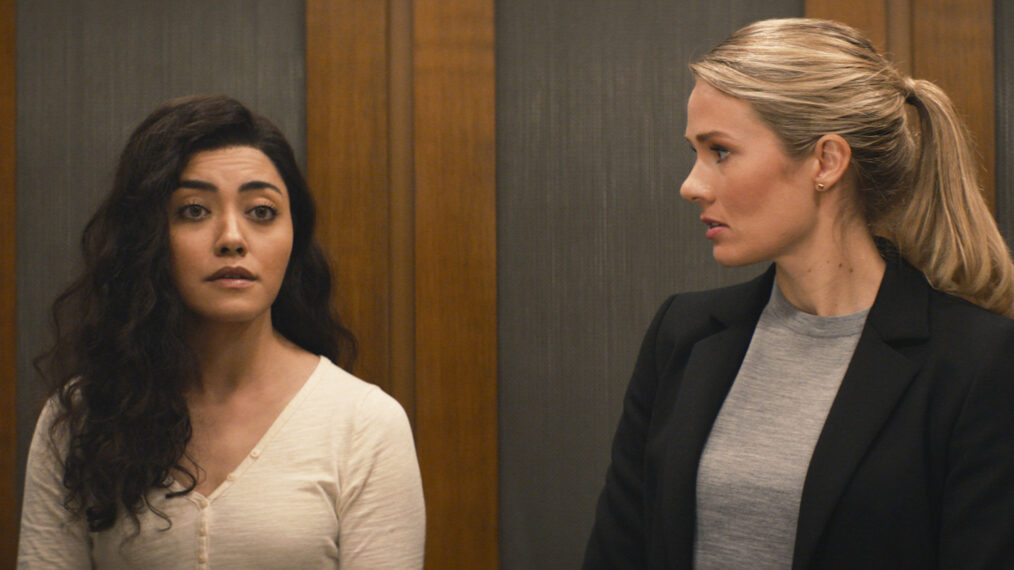#Directors Guild Members Overwhelmingly Vote to Ratify Deal With Studios, Streamers

Directors Guild of America members have voted to ratify the agreement that union negotiators struck with studios and streamers in early June.
Eighty-seven percent of the union voted in support of the deal in a referendum that ended on June 23, while 13 percent voted against it. Forty-one percent of the union’s 16,321 eligible voting members — a group that includes directors, assistant directors, unit production managers and stage managers, among others — turned out for the vote. The union framed this as a turnout level that “exceeded any prior DGA ratification vote.”
“I’m proud to report that DGA members have joined together to ratify a new contract that will allow every Director, Assistant Director, Unit Production Manager, Associate Director and Stage Manager to share in the success of what we create,” DGA president Lesli Linka Glatter said in a statement. “Our new contract secures gains on wages, global streaming residuals, safety, diversity and creative rights that build for the future and impact every category of member in our Guild.”
The new contract will take effect starting July 1 and will extend through June 30, 2026.
During the voting period, the details of the agreement got a mixed reaction from union members who spoke with The Hollywood Reporter early in the voting period. While some members have been excited by the broad reach of the gains, and how they impact many constituencies within the union, others publicly aired that they felt that the provision on artificial intelligence in the deal wasn’t airtight enough, were disappointed that streamer data transparency wasn’t tackled and said that the DGA had squandered the unusual leverage provided by the writers’ strike.
“There are huge gaps that need to be addressed. Chief among them is that we need to go back to being an industry that rewards performance and success, rather than the one-size-fits-all revenue model that we currently find ourselves going towards,” director Peter Atencio (The Machine) told THR earlier in the month.
Another DGA member who voted “yes” said of union negotiators, “they did get some significant gains. You have to remember the deal they had before they went into negotiations was already so much better than what we have at the WGA, so anything they add is a plus.”
The DGA broke with recent precedent in revealing the percentage of “yes” votes and the turnout figure this year; in the last few negotiations cycle, the union has not announced that information, instead saying their past deals were ratified by “an overwhelming margin.” The DGA turnout this year was relatively large for a Hollywood union: By contrast, the last time the Writers Guild of America reported its turnout, in 2017, that figure was 36.7 percent, up from 15 percent in 2014. SAG-AFTRA’s turnout in its last two negotiation cycles has been 27.2 percent and 15.3 percent, respectively.
Still, the union’s turnout was not quite as high as crew union IATSE’s in 2021, at a time when its members were complaining of extensive workdays and grueling working conditions as companies sought to push more product into the pipeline after COVID-19-induced production delays. That year, 72 percent of eligible IATSE members turned out to vote.
With their contract talks sandwiched between those for the Writers Guild of America (which went on strike over its negotiations) and SAG-AFTRA (which took a strike authorization vote before theirs), the DGA was under immense pressure in 2023 to bring back a good deal for its members. The tentative pact with the Alliance of Motion Picture and Television Producers was reached near midnight on June 3 after a long day of negotiations on Saturday, with proposed changes to the contract that DGA negotiations committee chair Jon Avnet called “historic.”
In her statement on Friday, Linka Glatter acknowledged that “the DGA didn’t bargain in a vacuum,” nodding to the writers’ strike that was ongoing as the union negotiated. She added, “We support the actors who are in negotiations and the writers who remain on strike, and we will stand with the IA and Teamsters when they negotiate their agreement next year. We won’t be satisfied until we all have fair contracts that reward us for our creative work — we must create a vibrant, sustainable industry that fairly values us all.”
The guild seemed prepared, in months leading up to the negotiations, to wage battle in this round of talks. The DGA scrapped early, informal discussions with the Alliance of Motion Picture and Television Producers (AMPTP) — in recent years the DGA has usually opted to negotiate early because the group believes that this approach can improve its leverage — and ended up with negotiations that followed the WGA’s talks. The guild sent messages to members, warning them of a particularly difficult negotiations environment, and formed an “outreach team” to mobilize its members during talks. The guild has never been known for acting combatively in talks with employers; this approach suggested it was at least preparing for a fight.
The DGA’s chief negotiator in 2023 was national executive director Russell Hollander, who worked alongside negotiations chair Jon Avnet and co-chairs Karen Gaviola and Todd Holland and a committee of more than 80 members. When it came to creative rights, Thomas Schlamme and Nicole Kassell helped lead discussions for the union. AMPTP president Carol Lombardini headed up talks for the entertainment companies.
If you liked the article, do not forget to share it with your friends. Follow us on Google News too, click on the star and choose us from your favorites.
For forums sites go to Forum.BuradaBiliyorum.Com
If you want to read more Like this articles, you can visit our Social Media category.




